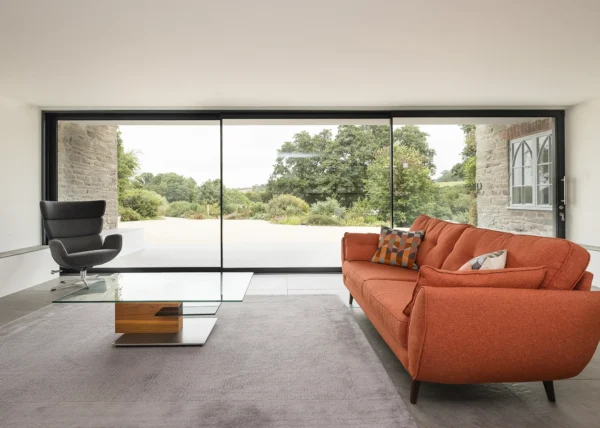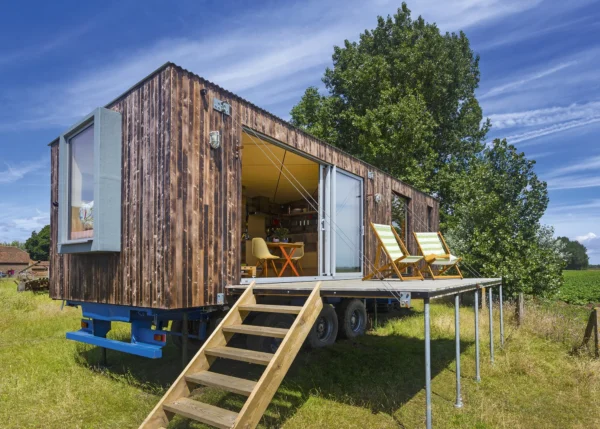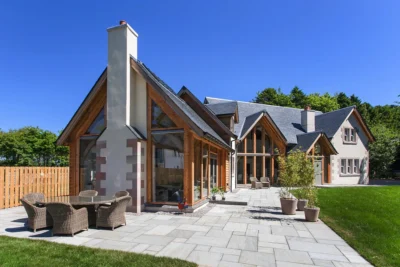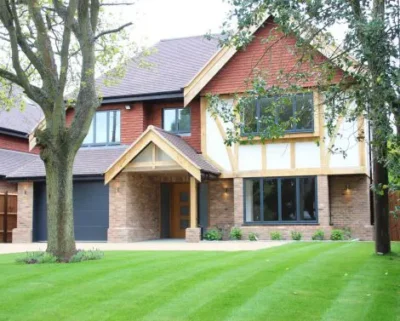The FMB Guide to Finding a Master Builder for Your Self Build
Choosing quality contractors and trades could make all the difference to your self build. Putting a good team in place can help to ensure that your project runs smoothly and you aren’t left with issues to fix later down the line. But where to start?
You might choose your builder based on personal recommendation from friends or family, but you’ll still need to vet that contractor carefully. So, take that opportunity to ask some questions. Was the builder easy to work with? What was their communication like? How did they resolve any issues along the way?
If you go through a trade comparison website, there will be a degree of protection as they often perform financial checks on their members. However, be aware that most do not investigate the builder’s standard of work. There may be reviews from previous customers, too, but don’t take these at face value – you should always ask to meet real-life clients and see examples of completed work in person.
One place to find a trustworthy builder is through a long-standing and reputable trade association, such as the Federation of Master Builders. We vet all our members before they join and their work is independently inspected on site, so you know it’s up to scratch.
Getting a Building Quote
Once you’ve made a shortlist of potential contractors you’ll need to get quotes from them for your home building project. Here are the five steps to take when contacting builders about your project:
1. Aim for three quotes
Any more can add confusion and some companies may be wary of quoting if there are more than three in the running.
2. Understand the difference between estimates and quotes
An estimate is an informed guess and will lack finer detail. Crucially, it’s non-binding and your builder has no obligation to stick to it. A quote should detail all aspects of the job and be what you end up paying, but bear in mind that changes to the build specification and increases in material costs can affect this.
3. Provide the builders with detailed drawings
There are many routes to designing a new home. One option is to engage an architect, technologist or similarly qualified designer, working alongside a structural engineer. Alternatively, some builders can offer an in-house architectural and technical design service, which can avoid the risk of paying for plans for a dream home that you then can’t afford to build.
4. Be clear on your budget
Be upfront about your maximum budget, but keep in mind that the cheapest quote may be so for a good reason. Make sure it’s clear what is and isn’t included in the price.
5. Not all quotes are free
Quotes take time to produce, so some builders may charge a fee. A quality builder will take time to understand the details of your build and plan for potential issues.
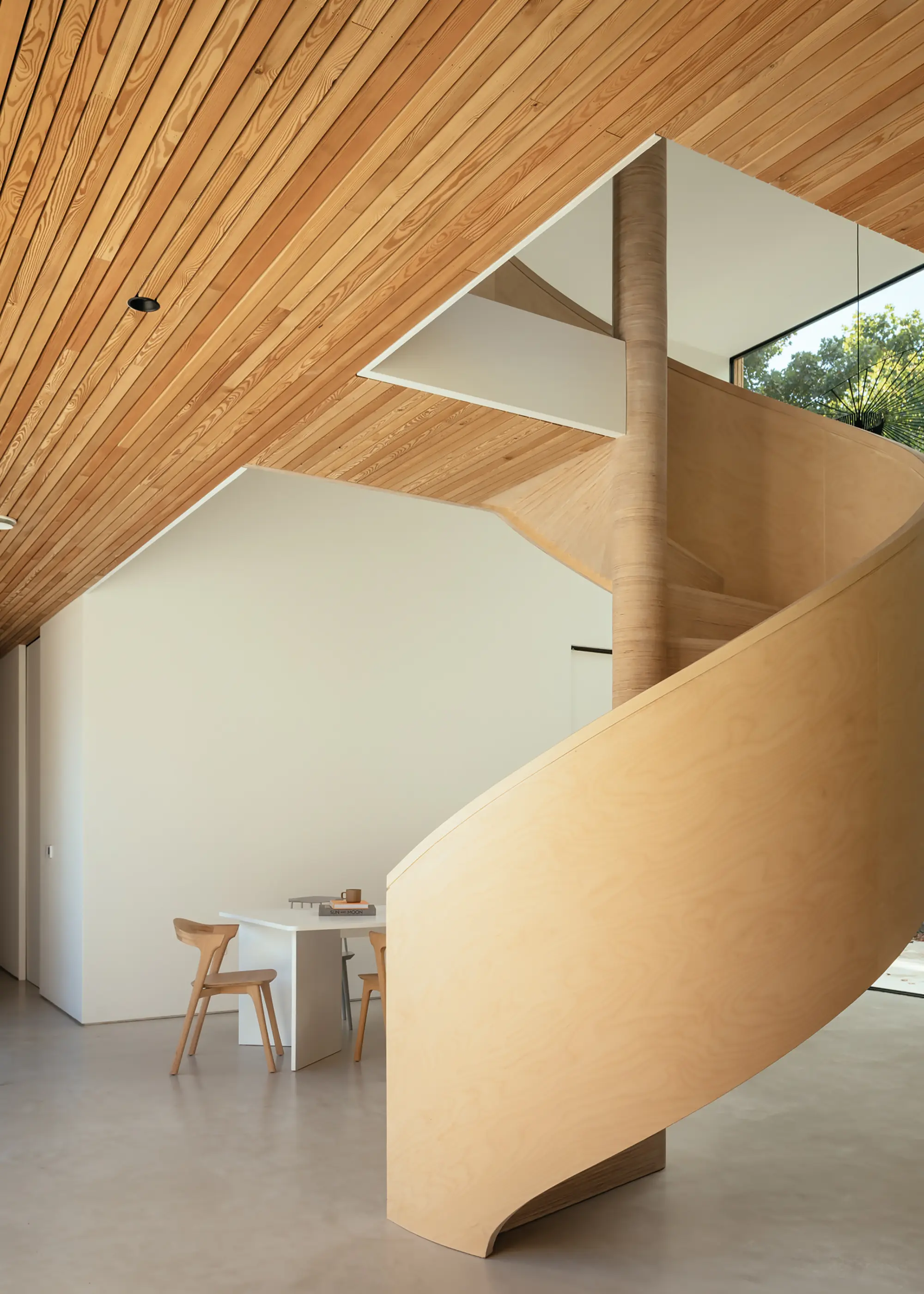
The owner of this house in Aberdeen was looking for a small, focused and dedicated building company with a track record of delivering high-quality projects, and found Coldwells Build, winner of the Housebuilder category at the 2023 Scotland Master Builder Awards, through a recommendation
Don’t Be Left in the Dark
Once you have an idea of project costs, it’s essential to do your homework and thoroughly check your builder before giving them the go-ahead. Have they worked on similar projects? For example, if you live in a listed building, do they have experience of heritage properties?
Unlike trades such as electricians, there aren’t any formal qualifications to look out for with general builders. However, they may carry a CSCS card, issued by the Construction Skills Certification Scheme, or be registered with TrustMark – a government endorsed scheme for tradespeople working in homes.
At the Federation of Master Builders, we’re campaigning for a licensing scheme for builders to clamp down on rogue traders, but in the meantime the responsibility to check your builder lies with you.
Membership of trade organisations like the FMB is a badge of quality in itself and means the vetting work has been done for you. At the FMB, all of our members are:
- Vetted for their trading history, credit history and insurance.
- Independently inspected on site to ensure their work is of a high standard.
- Bound to abide by the Federation of Master Builders’ Code of Conduct and required to act with integrity.
- Able to offer you a contract and an insurance warranty.
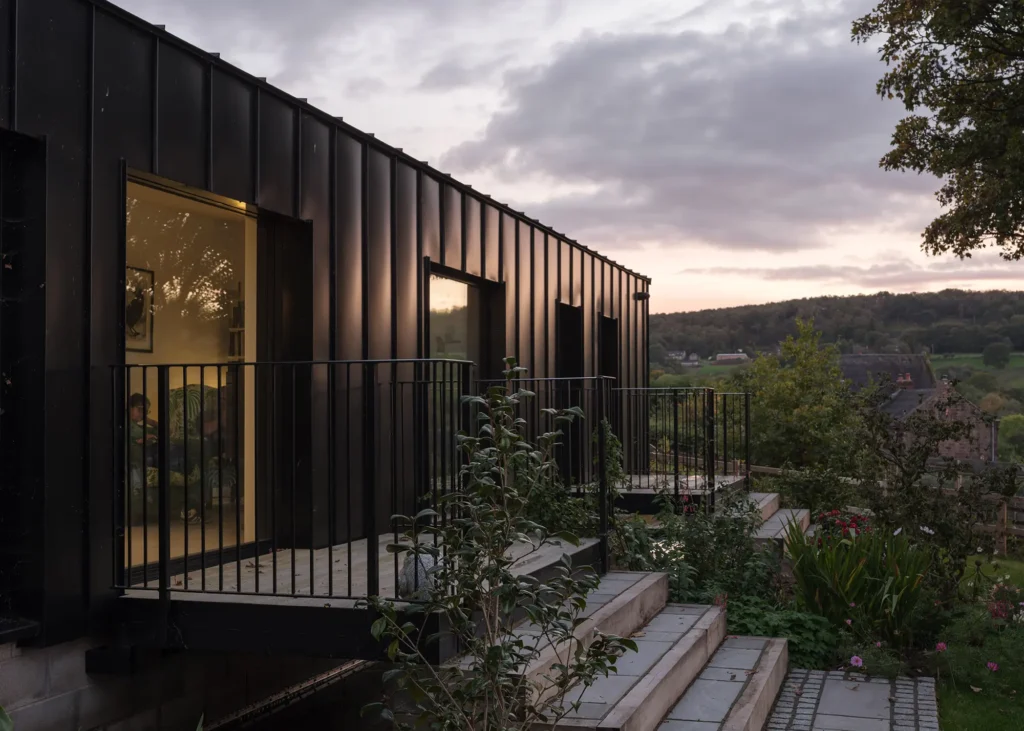
AJ Field Development’s quote for this eco-friendly build in North Staffordshire was almost identical to that of another contractor, but the owner was impressed by the quote’s transparency (including suggestions to save costs), the fact they were able to talk to several very satisfied previous clients, the good rapport they established and the builder’s FMB membership – demonstrating this was a company they could trust
Builder ChecklistGet references and ask to see examples of their work. What experience do they have with working on similar projects or with similar materials? Check they understand the VAT rules for self builds, too (most of their work should be zero-rated). Speak to previous clients in person to verify references and get a fuller picture of what the builder was like to work with. Did they communicate clearly, frequently and politely? Did they deliver the project on time and on budget – and if not, was there a good reason? Did the keep a tidy site and look to minimise noise disturbance for neighbours? When can they start? Good builders are often fully booked for several months in advance, so plan and find out when your preferred contractor is available. How long they have been trading? If they’re a newer business, find out what their previous experience is like. What accreditations do they have? Choose a member of a reputable trade organisation, such as the FMB, which undertakes financial checks and independent inspections on site. Affiliations like TrustMark can provide additional peace of mind. Ask about their insurance. Bear in mind most self builders will also need to arrange their own site insurance and structural warranty. Do they have a team of trusted trades? Many builders can project manage the works for you, including bringing in good local trades for their network, which can save you time and hassle. Find out about contracts. All Master Builders have access to fair, jargon-free, easy-to-use contract templates to help ensure both you and the contractor understand their obligations. Is the quote sufficiently detailed? The quotes you receive should go into significant depth – breaking down all the materials and labour required to complete the works, along with a robust schedule for every element of the project. This way, you can compare like-with-like and understand exactly what is or isn’t included. What happens when the project is complete? There should be an agreed walk-through process to identify any snagging items. Once these are resolved and you have received your certificates, warranty documents and handover pack, you should be ready to pay the final bill and move into your new home. |
Contracts & Payments
With your builder now lined up, it’s time to get things in writing. Signing a contract before work starts gives you protection if disagreements arise – and your builder should be able to provide you with one. On top of a summary of the work and the price you have agreed, this should cover information including who’s responsible for what, health and safety, warranties and insurance, as well as any further details specific to the build, such as Party Wall agreements and site access.
A good contract will also include information on how any changes to the project will be dealt with and documented, along with a process for how disputes will be resolved. Importantly, it should set out the quality of work expected – including things like materials to be used and expected finishes. This might be supplemented with photos to help everyone understand what’s agreed.
When it comes to payment terms, you should never pay for all the work upfront, but your builder may request a deposit to buy materials. Record any payments in writing. It’s usual to pay in instalments at agreed stages throughout the project, and doing so on time is important – payments are often used to fund materials purchases and any delay can push back your completion date.
Some individual works may be priced differently. For example, if you want high-quality random stone walls and the finish is paramount, you might decide to engage the mason on a day rate to give them the space to deliver an exceptional job.
Finally, it’s a wise move to take out your own self build site insurance policy for the project. This will cover your liability for any accidents and injuries; plant, tools and equipment; the works and materials etc.
| Brian Berry is the chief executive of the Federation of Master Builders. He is also a member of the Construction Leadership Council (CLC). You can search for a Master Builder on the Federation of Master Builders’ website. |
Main image: The owner of this house in Aberdeen was looking for a small, focused and dedicated building company with a track record of delivering high-quality projects, and found Coldwells Build, winner of the Housebuilder category at the 2023 Scotland Master Builder Awards, through a recommendation
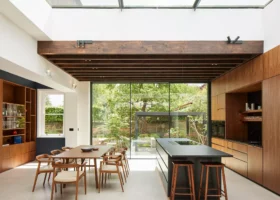


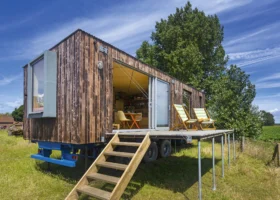
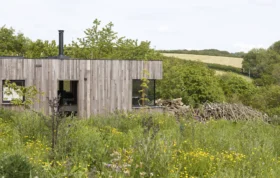

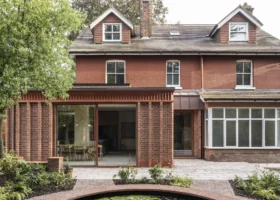
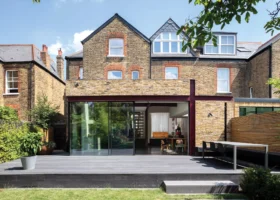




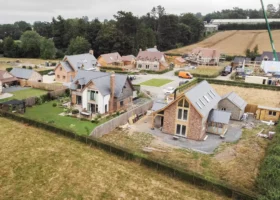




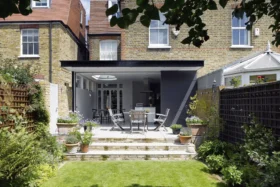
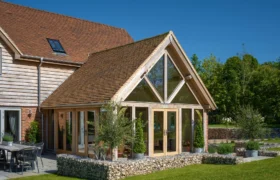


















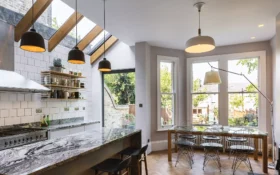





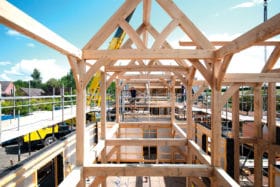
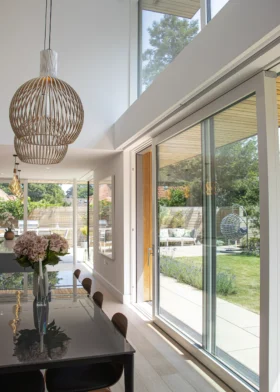
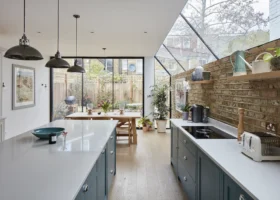






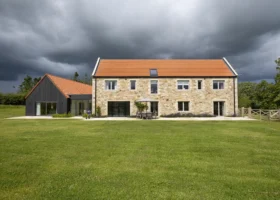




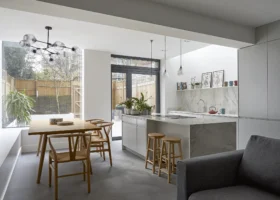

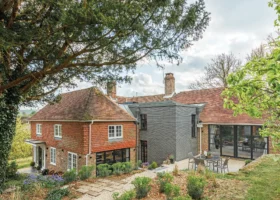
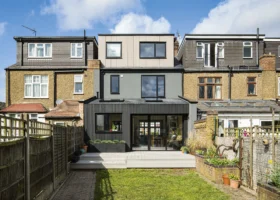
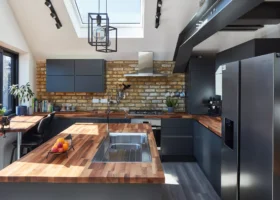
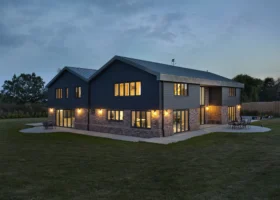






















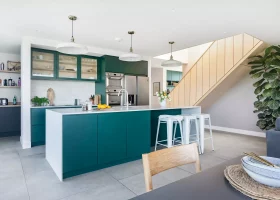











 Login/register to save Article for later
Login/register to save Article for later


